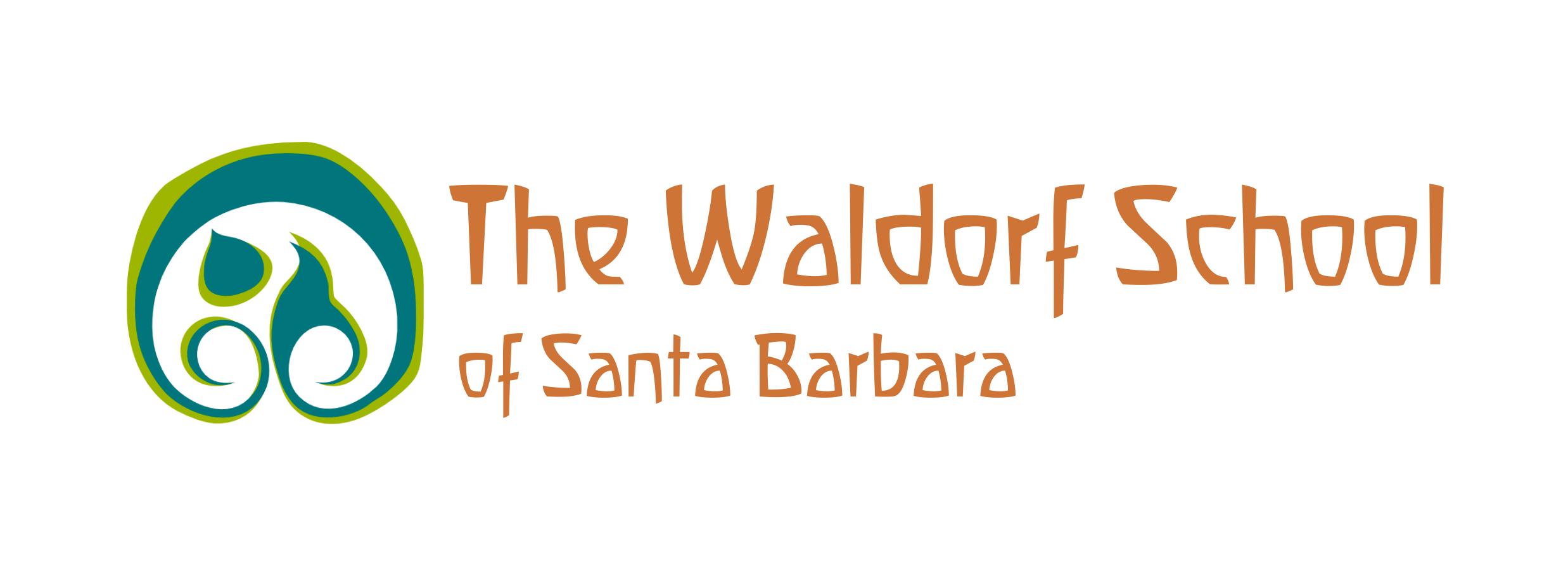Rootedness and the Well-Being of the Child and the Earth
Dear Member of The Waldorf School of Santa Barbara Community,
Twentieth-century French philosopher Simone Weil writes, "To be rooted is perhaps the most important and least recognized need of the human soul. It is one of the hardest to define. A human being has roots by virtue of his real, active, and natural participation in the life of a community which preserves in living shape certain particular treasures of the past and certain particular expectations of the future."
These are words for us to ponder, perhaps read thrice. Are the children of 2022 rooted enough in community? Are they connected enough to treasures of the past and expectations of the future? Or are their lives becoming more uprooted and abstract, community-less, and estranged from cohering treasures and expectations?
Yesterday the celebration here around the maypole -- a pole often understood to be a symbol for the "world tree" -- rooted us. Our Mayfaire Festival revealed yet again particular treasures of the past -- dancing, singing, and the wearing of garlands; a sacramental, thanksgiving vision -- and certain expectations of the future: the carrying-on of dancing, singing, and the wearing of garlands; of a sacramental, thanksgiving vision.
By rooting children thusly in a place-based community, rooting them with such cohering life-giving treasures and expectations, Waldorf education fosters the well-being of children and the well-being of the earth of which they are part. And such rooting is what distinguishes us from most other schools.
(And perhaps the implicit challenge of a Mayfaire -- or a day at a Waldorf school -- is to keep alive its spirit -- this thanksgiving, sacramental vision -- after the Mayfaire, or school day, is over; to remember with Wendell Berry that "there are no sacred and unsacred places…only sacred and desecrated places"; to see how a sacramental, thanksgiving vision -- borrowing from Christine Valters Paintner -- "extends out to the world so that everything can be a sacrament, meaning every person, creature, plant, and object can be an opportunity to encounter something of the Divine Presence.")
In gratitude,
The WSSB Admin Team
PS The word of the day is heimat, which is German for "deep-rooted fondness towards a place to which one has a strong feeling of belonging."
PPS Every Waldorf school has its unique terroir; one aspect of WSSB’s terroir
-- owing to the founders of our school and our proximity to farms and various wildernesses -- is our emphasis on "educating future caretakers of the earth," or what's called the "Land Ethic." Here's the Boy Scouts of America on what the "Land Ethic" is:
"The Land Ethic teaches us that we should consider our actions in light of their impact on the living, breathing community that is the land, and that we should select the alternative available that does the least violence, or impact, to that community. The Land Ethic grows strongest when we have experienced the Land, grown to love and respect it, and have labored to enhance or restore it or, as Aldo Leopold would have put it, when we have practiced "conservation," defined as restoring the capacity of the Land for self-renewal. We understand the Land Ethic...as follows:
A thing is right when it tends to preserve the integrity, stability, and beauty of the biotic community. It is wrong when it tends otherwise.
Are you ready to face the challenge of looking at the Land in this fashion? If so, then you understand the Land Ethic."
